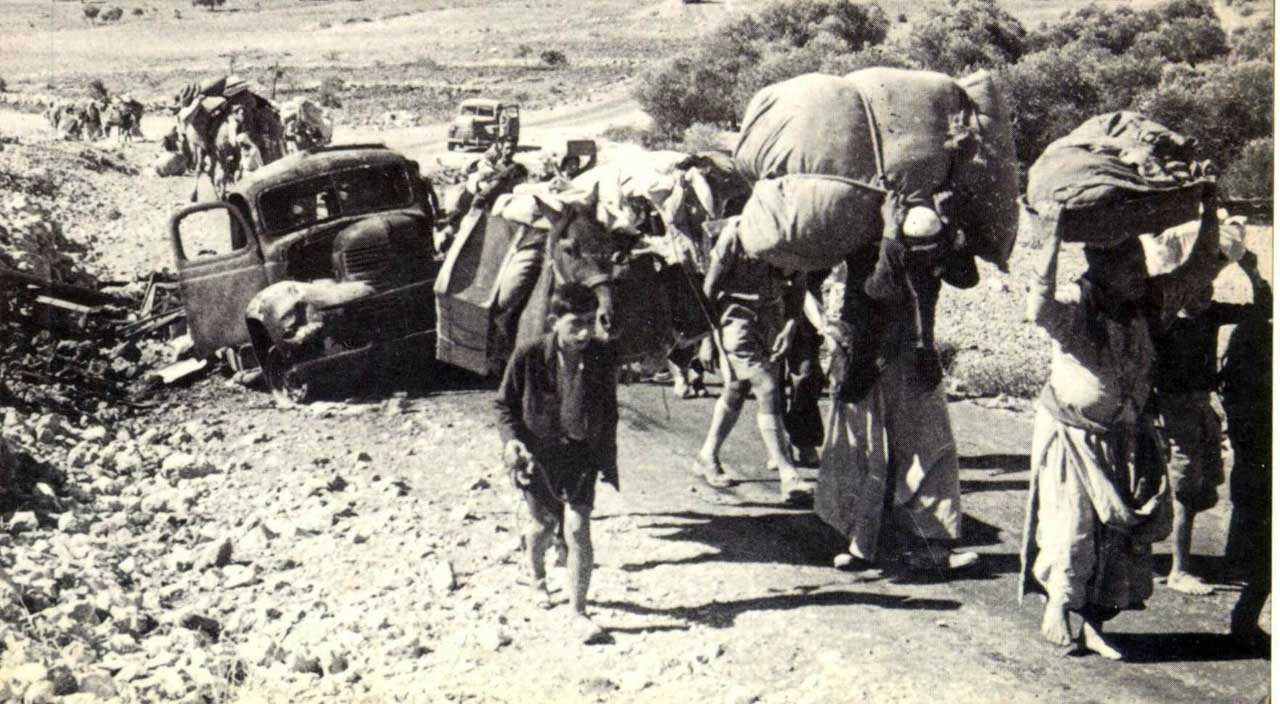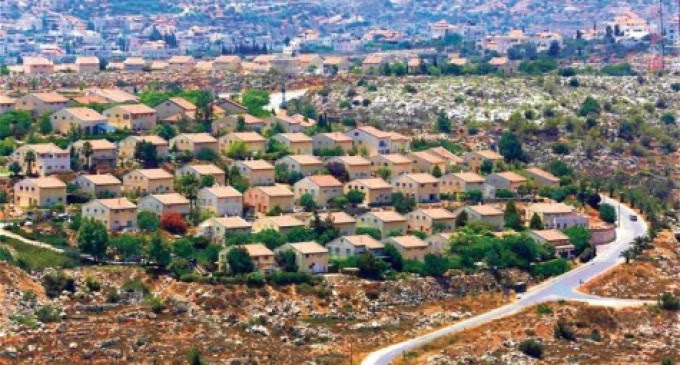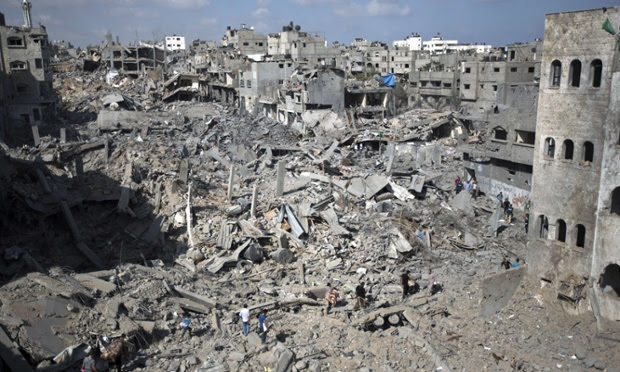ISRAELI SETTLEMENTS, ILLEGAL ACCORDING TO
 Since late 2015, 249 Palestinians have been killed in Israel and the Palestinian territories [File: EPA]
Since late 2015, 249 Palestinians have been killed in Israel and the Palestinian territories [File: EPA]
ERETZ-ISRAEL [(Hebrew) – the Land of Israel, Palestine] was the birthplace of the Jewish people. Here their spiritual, religious and political identity was shaped. Here they first attained to statehood, created cultural values of national and universal significance and gave to the world the eternal Book of Books.After being forcibly exiled from their land, the people kept faith with it throughout their Dispersion and never ceased to pray and hope for their return to it and for the restoration in it of their political freedom.
Impelled by this historic and traditional attachment, Jews strove in every successive generation to re-establish themselves in their ancient homeland. In recent decades they returned in their masses. Pioneers, ma’pilim [(Hebrew) – immigrants coming to Eretz-Israel in defiance of restrictive legislation] and defenders, they made deserts bloom, revived the Hebrew language, built villages and towns, and created a thriving community controlling its own economy and culture, loving peace but knowing how to defend itself, bringing the blessings of progress to all the country’s inhabitants, and aspiring towards independent nationhood.
In the year 5657 (1897), at the summons of the spiritual father of the Jewish State, Theodore Herzl, the First Zionist Congress convened and proclaimed the right of the Jewish people to national rebirth in its own country.
This right was recognized in the Balfour Declaration of the 2nd November, 1917, and re-affirmed in the Mandate of the League of Nations which, in particular, gave international sanction to the historic connection between the Jewish people and Eretz-Israel and to the right of the Jewish people to rebuild its National Home.
The catastrophe which recently befell the Jewish people – the massacre of millions of Jews in Europe – was another clear demonstration of the urgency of solving the problem of its homelessness by re-establishing in Eretz-Israel the Jewish State, which would open the gates of the homeland wide to every Jew and confer upon the Jewish people the status of a fully privileged member of the comity of nations.
Survivors of the Nazi holocaust in Europe, as well as Jews from other parts of the world, continued to migrate to Eretz-Israel, undaunted by difficulties, restrictions and dangers, and never ceased to assert their right to a life of dignity, freedom and honest toil in their national homeland.
| In the Second World War, the Jewish community of this country contributed its full share to the struggle of the freedom- and peace-loving nations against the forces of Nazi wickedness and, by the blood of its soldiers and its war effort, gained the right to be reckoned among the peoples who founded the United Nations.On the 29th November, 1947, the United Nations General Assembly passed a resolution calling for the establishment of a Jewish State in Eretz-Israel; the General Assembly required the inhabitants of Eretz-Israel to take such steps as were necessary on their part for the implementation of that resolution. This recognition by the United Nations of the right of the Jewish people to establish their State is irrevocable.
This right is the natural right of the Jewish people to be masters of their own fate, like all other nations, in their own sovereign State. ACCORDINGLY WE, MEMBERS OF THE PEOPLE’S COUNCIL, REPRESENTATIVES OF THE JEWISH COMMUNITY OF ERETZ-ISRAEL AND OF THE ZIONIST MOVEMENT, ARE HERE ASSEMBLED ON THE DAY OF THE TERMINATION OF THE BRITISH MANDATE OVER ERETZ-ISRAEL AND, BY VIRTUE OF OUR NATURAL AND HISTORIC RIGHT AND ON THE STRENGTH OF THE RESOLUTION OF THE UNITED NATIONS GENERAL ASSEMBLY, HEREBY DECLARE THE ESTABLISHMENT OF A JEWISH STATE IN ERETZ-ISRAEL, TO BE KNOWN AS THE STATE OF ISRAEL. WE DECLARE that, with effect from the moment of the termination of the Mandate being tonight, the eve of Sabbath, the 6th Iyar, 5708 (15th May, 1948), until the establishment of the elected, regular authorities of the State in accordance with the Constitution which shall be adopted by the Elected Constituent Assembly not later than the 1st October 1948, the People’s Council shall act as a Provisional Council of State, and its executive organ, the People’s Administration, shall be the Provisional Government of the Jewish State, to be called “Israel”. THE STATE OF ISRAEL will be open for Jewish immigration and for the Ingathering of the Exiles; it will foster the development of the country for the benefit of all its inhabitants; it will be based on freedom, justice and peace as envisaged by the prophets of Israel; it will ensure complete equality of social and political rights to all its inhabitants irrespective of religion, race or sex; it will guarantee freedom of religion, conscience, language, education and culture; it will safeguard the Holy Places of all religions; and it will be faithful to the principles of the Charter of the United Nations. THE STATE OF ISRAEL is prepared to cooperate with the agencies and representatives of the United Nations in implementing the resolution of the General Assembly of the 29th November, 1947, and will take steps to bring about the economic union of the whole of Eretz-Israel. WE APPEAL to the United Nations to assist the Jewish people in the building-up of its State and to receive the State of Israel into the comity of nations. WE APPEAL – in the very midst of the onslaught launched against us now for months – to the Arab inhabitants of the State of Israel to preserve peace and participate in the upbuilding of the State on the basis of full and equal citizenship and due representation in all its provisional and permanent institutions. WE EXTEND our hand to all neighbouring states and their peoples in an offer of peace and good neighbourliness, and appeal to them to establish bonds of cooperation and mutual help with the sovereign Jewish people settled in its own land. The State of Israel is prepared to do its share in a common effort for the advancement of the entire Middle East. WE APPEAL to the Jewish people throughout the Diaspora to rally round the Jews of Eretz-Israel in the tasks of immigration and upbuilding and to stand by them in the great struggle for the realization of the age-old dream – the redemption of Israel. PLACING OUR TRUST IN THE “ROCK OF ISRAEL”, WE AFFIX OUR SIGNATURES TO THIS PROCLAMATION AT THIS SESSION OF THE PROVISIONAL COUNCIL OF STATE, ON THE SOIL OF THE HOMELAND, IN THE CITY OF TEL-AVIV, ON THIS SABBATH EVE, THE 5TH DAY OF IYAR, 5708 (14TH MAY,1948).
* Published in the Official Gazette, No. 1 of the 5th, Iyar, 5708 (14th May, 1948). |
|||
[2]
BASIC LAW: ISRAEL AS THE NATION STATE OF THE JEWISH PEOPLE
1 — Basic principles
A. The land of Israel is the historical homeland of the Jewish people, in which the State of Israel was established.
B. The State of Israel is the national home of the Jewish people, in which it fulfills its natural, cultural, religious and historical right to self-determination.
C. The right to exercise national self-determination in the State of Israel is unique to the Jewish people.
2 — The symbols of the state
A. The name of the state is “Israel.”
B. The state flag is white with two blue stripes near the edges and a blue Star of David in the center.
C. The state emblem is a seven-branched menorah with olive leaves on both sides and the word “Israel” beneath it.
D. The state anthem is “Hatikvah.”
E. Details regarding state symbols will be determined by the law.
3 — The capital of the state
Jerusalem, complete and united, is the capital of Israel.
4 — Language
A. The state’s language is Hebrew.
B. The Arabic language has a special status in the state; Regulating the use of Arabic in state institutions or by them will be set in law.
C. This clause does not harm the status given to the Arabic language before this law came into effect.
5 — Ingathering of the exiles
The state will be open for Jewish immigration and the ingathering of exiles
6 — Connection to the Jewish people
A. The state will strive to ensure the safety of the members of the Jewish people in trouble or in captivity due to the fact of their Jewishness or their citizenship.
B. The state shall act within the Diaspora to strengthen the affinity between the state and members of the Jewish people.
C. The state shall act to preserve the cultural, historical and religious heritage of the Jewish people among Jews in the Diaspora.
7 — Jewish settlement
A. The state views the development of Jewish settlement as a national value and will act to encourage and promote its establishment and consolidation.
8 — Official calendar
The Hebrew calendar is the official calendar of the state and alongside it the Gregorian calendar will be used as an official calendar. Use of the Hebrew calendar and the Gregorian calendar will be determined by law.
9 — Independence Day and memorial days
A. Independence Day is the official national holiday of the state.
B. Memorial Day for the Fallen in Israel’s Wars and Holocaust and Heroism Remembrance Day are official memorial days of the State.
10 — Days of rest and sabbath
The Sabbath and the festivals of Israel are the established days of rest in the state; Non-Jews have a right to maintain days of rest on their Sabbaths and festivals; Details of this issue will be determined by law.
11 — Immutability
This Basic Law shall not be amended, unless by another Basic Law passed by a majority of Knesset members.
THE TIMES OF ISRAEL
ISRAEL PASSES JEWISH STATE LAW, ENSHRINING
”NATIONAL HOME OF THE JEWISH PEOPLE”
19 JULY 2018
https://www.timesofisrael.com/
[4]
2018: More casualties and food insecurity, less funding for humanitarian aid
Trends affecting humanitarian affairs in the occupied Palestinian territory
Today, the United Nations Office for the Coordination of Humanitarian Affairs (OCHA) in the occupied Palestinian territory (oPt) released a summary of data collected during 2018. Further breakdowns and statistics from previous years are available through the links below.
Record numbers of Palestinian deaths and injuries
A total of 295 Palestinians were killed and over 29,000 were injured in 2018 by Israeli forces. This is the highest death toll in a single year since the Gaza conflict of 2014 and the highest number of injuries recorded since OCHA began documenting casualties in the oPt in 2005.
About 61 per cent of the fatalities (180 people) and 79 per cent of the injuries (over 23,000) were in the context of Gaza’s ‘Great March of Return’ demonstrations by the fence. Across the oPt, 57 of the Palestinian fatalities and about 7,000 of the injuries were under 18 years of age. At least 28 of the Palestinians killed by Israeli forces in 2018 were members of armed groups in Gaza and another 15 were perpetrators or alleged perpetrators of attacks against Israelis in the West Bank.
A total of 14 Israelis were killed during the year by Palestinians and at least 137 others were injured. While the number of fatalities is nearly the same as in 2017 (15 people), the proportion of civilians among these fatalities (50 per cent) increased compared to the previous year (27 per cent).
Uptrend in attacks by settlers
In 2018, OCHA recorded 280 incidents where Israeli settlers killed or injured Palestinians or damaged Palestinian property, marking a 77 per cent increase compared with 2017; as a result, one Palestinian woman was killed, and another 115 Palestinians were injured (another two Palestinian suspected perpetrators of attacks were killed by Israeli settlers). Palestinian property vandalized by settlers includes some 8,000 trees and about 620 vehicles.
There were at least 181 incidents where Palestinians killed or injured settlers and other Israeli civilians in the West Bank or damaged Israeli property, a 28 per cent decline compared with the previous year. However, the number of Israelis killed in these incidents in 2018 (seven), increased compared to 2017 (four).
West Bank demolitions continue, but fewer Palestinians are displaced
In 2018, the Israeli authorities demolished or seized 459 Palestinian structures across the West Bank, mostly in Area C and East Jerusalem, overwhelmingly on the grounds of a lack of Israeli-issued building permits, which are almost impossible to obtain, slightly more than in 2017. Such incidents displaced 472 Palestinians, including 216 children and 127 women, the lowest such figure since OCHA began systematically recording demolitions in 2009. In Area C alone, there are over 13,000 pending demolition orders, including 40 issued against schools.
The blockade on Gaza still extremely restrictive
The land, sea and air blockade on the Gaza Strip, imposed by Israel citing security concerns, continued, with people being able to exit on an exceptional basis only. On a monthly average, in 2018 (Jan-Nov) there were some 9,200 exits from Gaza by permit holders through the Israeli-controlled Erez
The rate of approval of permit applications for UN national staff to leave Gaza stood at 59 per cent during 2018, up from 47 per cent in 2017. However, the total number of applications submitted in 2018 dropped by 24 per cent, primarily due to the larger number of staff that were denied for security reasons and banned for reapplying for 12 months, currently 131 compared to 41 staff by the end of 2017.
Kerem Shalom, controlled by Israel, remained the almost exclusive crossing for the movement of commodities to and from Gaza, with limited imports also allowed via the Salah Ad Din Gate on the border with Egypt. On a monthly average, about 8,300 truckloads of goods entered Gaza via both crossings in 2018, 17 per cent below the equivalent average in the previous two years, while 209 trucks exited Gaza on average, mostly to West Bank markets, nearly the same as in 2016-2017. Access to fishing areas and to farming lands near the fence inside Gaza remained restricted.
More people in Gaza food insecure
About 1.3 million people in Gaza, or 68 per cent of the population, were identified as food insecure in 2018, primarily due to poverty, up from 59 per cent in 2014, when a similar survey was conducted. The unemployment rate in Gaza reached an average of almost 53 per cent in the first three quarters of 2018, an all-time record, with youth unemployment at 69 per cent. By contrast, in the West Bank, 12 per cent of the Palestinians are food insecure, down from 15 per cent in 2014, while unemployment stood at an average of 18 per cent.
Record-low in humanitarian funding
While humanitarian needs across the oPt rose during 2018, funding levels for humanitarian interventions declined significantly: only US$221 million had been received, against the $540 million requested in the 2018 Humanitarian Response Plan
Note: Data on casualties and demolitions
[9]
STATUS OF SETTLEMENTS UNDER INTERNATIONAL LAW
Article 49 of the Fourth Geneva Convention states: “The Occupying Power shall not deport or transfer parts of its own civilian population into the territory it occupies.” It also prohibits the “individual or mass forcible transfers, as well as deportations of protected persons from occupied territory”.
The extensive appropriation of land and the appropriation and destruction of property required to build and expand settlements also breach other rules of international humanitarian law. Under the Hague Regulations of 1907, the public property of the occupied population (such as lands, forests and agricultural estates) is subject to the laws of usufruct. This means that an occupying state is only allowed a very limited use of this property. This limitation is derived from the notion that occupation is temporary, the core idea of the law of occupation. In the words of the International Committee of the Red Cross, the occupying power “has a duty to ensure the protection, security, and welfare of the people living under occupation and to guarantee that they can live as normal a life as possible, in accordance with their own laws, culture, and traditions.””
AMNESTY INTERNATIONAL
CHAPTER 3: ISRAELI SETTLEMENTS AND
INTERNATIONAL LAW
[15]
INTERNATIONAL COURT OF JUSTICE
LEGAL CONSEQUENCES OF THE CONSTRUCTION OF
A WALL IN THE OCCUPIED PALESTINIAN TERRITORY
The Government shall promote the development of the international legal order.





